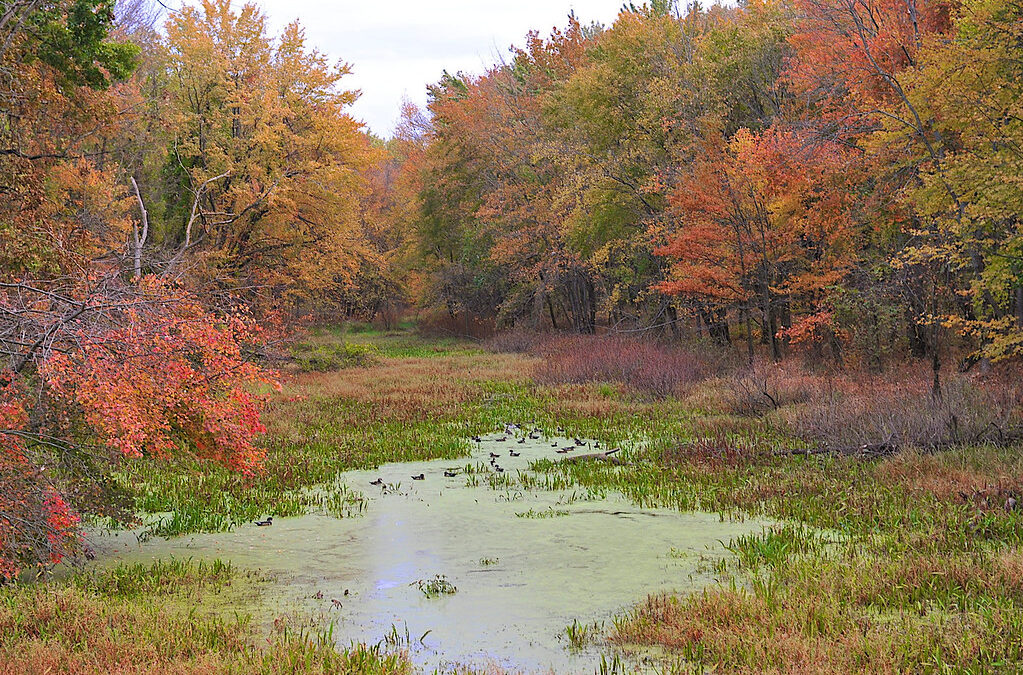Loss of beaches. Flash floods. Intense storms. Wildfires so severe that insurers are fleeing whole U.S. states. All of these, in the 21st century, reflect our impacts. We finally notice when we need rescue on the road, when the lost beachfront is our own, when our streets flood.
Why didn’t we notice earlier?
What are we failing to notice now?
Donald W. McCormick, a member of Grass Valley Friends Meeting in Nevada City, California, has explored Quaker mindfulness in the act of listening for spiritual messages in Quaker Meeting for Worship.
In a parallel way, we listen for messages from our Earth and the living communities it supports.
We think about the ripple effects of our presence. We feel the impact of what we do—across systems, across time, across communities, throughout the web of life.
Nature photographer Michael Zager observes that Atlantic menhaden (herring found in the Chesapeake Bay and along coastal waters) eat phytoplankton and zooplankton, keeping the waters healthy. Companies take massive hauls of menhaden and crush them up for fertilizers and animal feed, and market them as bait for blue crab and lobster businesses.
It’s mindfulness that empowers us to pay attention at a deep level. At the place where what we discern isn’t just knowledge, but a connection to an inner call to act. Oftentimes, it’s how we refrain from acting that matters most.
Mindfulness encompasses an awareness of our responsibility to respect natural evolutionary processes. To promote the health of Earth and its intricate systems.
Listening for Nature’s Messages
Hildegard Westerkamp, a sound ecologist, started working on the World Soundscape Project in 1973. Since then, free-living animals have declined by nearly 70%. (Only 6% of the weight of land animals on Earth today is made up of free-living communities.)
“We proposed to start to listen to the soundscape, to everything, no matter how uncomfortable it may be – how uncomfortable the message,” Westerkamp explains. “The act of listening itself can be both comforting and highly unsettling. But most importantly it tends to connect us to the reality of what we are facing.”
Using our senses to deliberately, unflinchingly bear witness to ecocide is a form of active mindfulness.
Within mindfulness is a relentless sensitivity to the effects of unmindful privilege—around us, and around the world. Those human beings with the least resources, and those, human and other, who cannot easily flee, are the most impacted by abrupt climate chaos and biodiversity loss.
Mindfulness also pulls us into inward contemplation. Who would we be, were we to prioritize respect for other beings in our decision-making processes? How might we best tune our lives into harmony with Earth’s other lives?
Please feel empowered to comment on this query in the field below.

